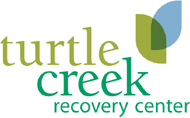What is the 12 Step Program?
The 12 step program is based on a model, made famous from Alcoholics Anonymous, which follows a specific pattern of proven steps to help treat alcoholism. The 12 step program has been instrumental in helping thousands of alcoholics not only quit drinking, but mentoring alcoholics currently struggling with the problem. The 12 step program is based around the idea that alcoholism is a spiritual disease, and with the right guidance, support, and spiritual fortitude, anyone can recover from this devastating illness.
Developed over 65 years ago by a small group of alcoholics, the 12 step program was designed to provide simple and effective tools for individuals dealing with an alcohol addiction, based on a set of spiritual principles and a strong fellowship with others in the organization. Ever since then, this 12 step approach has been adapted by countless of rehab and treatment centers all over the world, as well as self-supporting groups like Alcoholics Anonymous and Narcotics Anonymous.
Releasing Power Over Your Life
The first step in the 12 step program may sound like the simplest one, but can often be the most difficult step for struggling alcoholics. This first step is to admit that you are powerless over your addiction, and that your current situation has become unmanageable. Only by admitting that you are powerless over your addiction, can you open yourself up to a greater power, traditionally defined as God, to be able to restore health, sobriety, and balance to your life. And this is Step 2, to believe that a higher power than yourself can restore you back to sanity. By making the decision to hand your life and will over to God, you are completing Step 3, which is to put your addiction in God’s hands.
Taking Responsibility
The next three steps of the 12 Step program have to do with coming to grips with your alcohol addiction, and taking responsibility. Step 4 starts off by taking an honest and unflinching moral inventory of yourself and your own character. Step 5 and Step 6 require the participants to admit to God, as well as their peers, their own shortcomings and character flaws, while looking to God to take them away. Step 7 urges the participant to humbly come to God and ask him for forgiveness and to assistance through this difficult struggle with alcoholism.
Demonstrate Continuity
Because rehabilitation is a life-long process, it is vital for the recovering alcoholic to show continuity during their recovery process, while demonstrating a consistency in their relationships and actions. And one of the best ways to develop continuity is to take responsibility for past harms and trespasses. Step 8 requires each participant to make a list of persons they have harmed in the past, while Step 9 instructs the individual to repair any of these past relationships, if possible, by seeking redemption and forgiveness. Step 10 advises these participants to keep working diligently on improving their behavior through the means of sincere self-analysis and self-discipline.
Foster Spirituality and Help Others
The final two steps of the 12 Step program are about fostering your own spirituality and using it to make a difference in other people’s lives. Step 11 advises participants to practice prayer and meditation every day, as to better understand and harness the hidden spiritual potential in each of their lives. Lastly, Step 12 is all about using everything they have learned from the previous steps and sharing their blessing with others who need help. Now this does not mean evangelizing, instead it simply requests that each participant should let others know the tremendous difference the 12 step program has made in their lives and how it might help others who are also struggling with the same difficulties and temptations.




